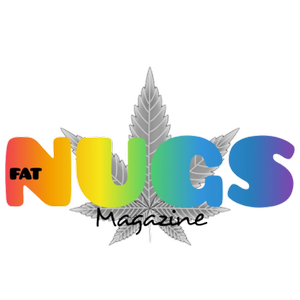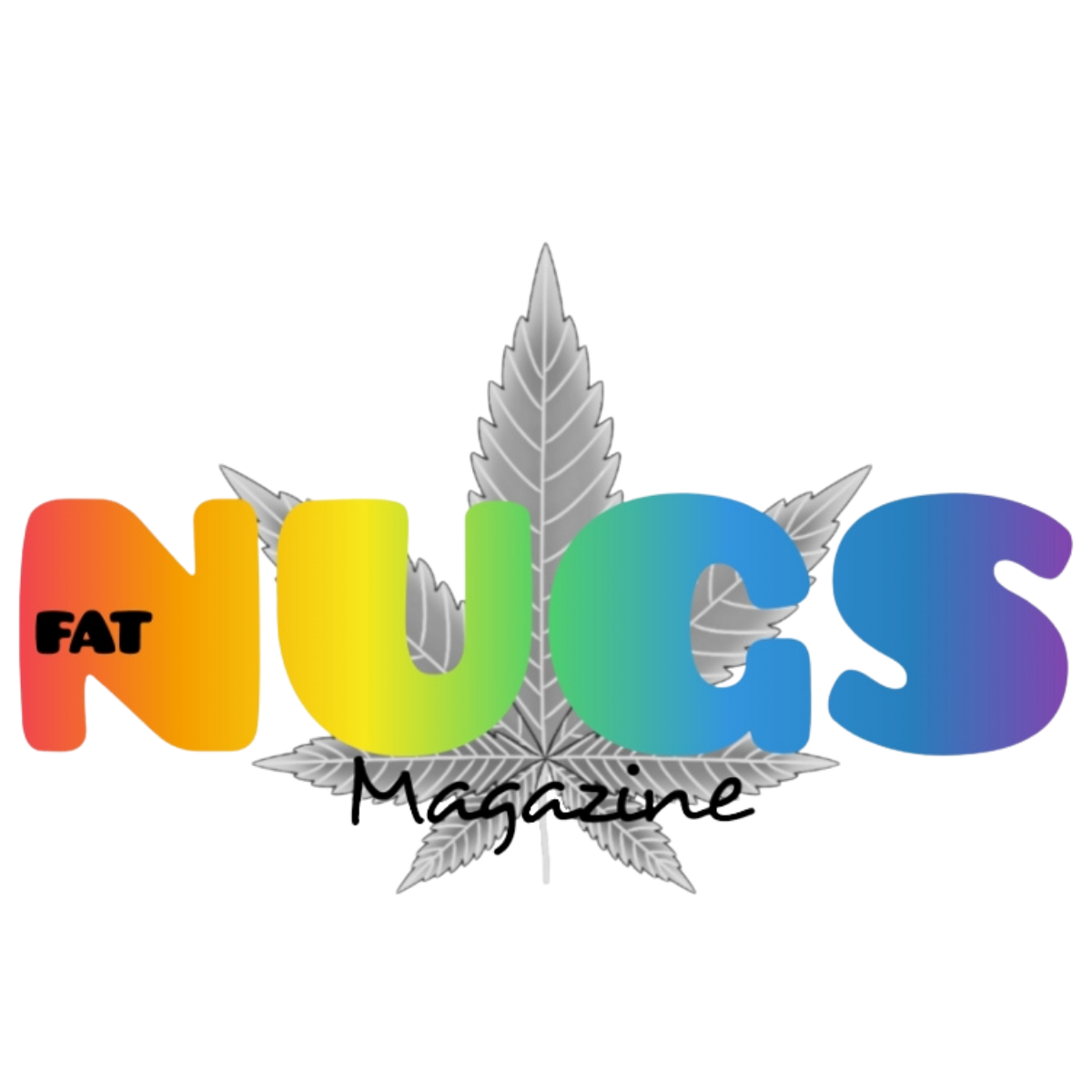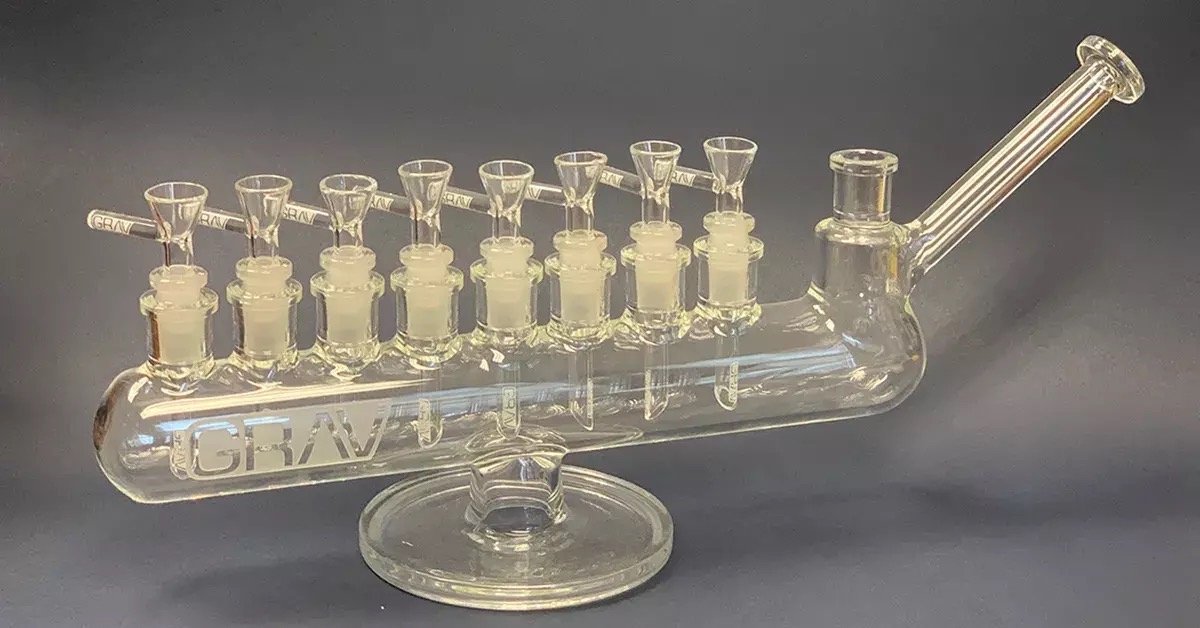The Token Chosen: Jews, Joints, and Cannabis’ Continuing Role in Jewish History
Gravlabs Menorah Bong Photo Courtesy of YIVO Archives
The Jewish relationship with cannabis stretches through time immemorial - from the ancient Israelite priests to the modern-day activists who fight for restorative justice. As doctors reassess their understanding of cannabis, which has been tinged by decades of racist government propaganda, it’s important to look back and see how our people have historically approached cannabi as well as its role in shaping society and criminal justice. For curious stoners, the new exhibit at the YIVO Institute for Jewish Research, Am Yisrael High: The Story of Jews and Cannabis, enlightens members of the tribe as to its forgotten history with cannabis.
The recent discovery of THC remnants in a Jewish temple further proves the existence of ancient Israelite cannabis users. While references in Exodus, Song of Songs, the Talmud, and other texts to KaNeh-Bosem, or “fragrant reed/aromatic cane,” describe it as an anointing oil for high priests, it plays an outsized role in Jewish life over the millennia.
The Talmud and Shulchan Aruch mention the plant as a source for wicks for sabbath lights, hemp for prayer shawls (talliot,) or the roofs of Sukkot. As the Jewish people faced dispossession following their expulsion from Ancient Israel, they continued using KaNeh-Bosem for religious, medicinal, and recreational purposes. Maimonedes, the Sephardic Jewish philosopher, medic, and Torah scholar, was known to prescribe cannabis oil for ear infections in the 12th Century. In the Ben Ezra Synagogue in Cairo, lyrics reference Jews high on hashish having ‘voracious appetites.’ As Eddy Portnoy, curator of YIVO’s Am Yisrael High exhibit, says: “It’s an early 15th Century reference to the munchies in Judeo-Arabic; that blew my mind.”
Even today, Jewish involvement in cannabis hasn’t stopped. Professor Raphael Mechoulam, the “father of cannabis research,” is treated as a rockstar by the cannabis community. Dubbed “The Man” by High Times magazine, in 1968, Mechoulam was the first scientist to isolate tetrahydrocannabinol, or THC - the compound in cannabis that gets you high. The subsequent isolation and discovery of the endocannabinoid system is fueling a paradigm shift in mental healthcare and cannabis.
As an aside, Mechoulam’s introduction to cannabis research feels like the most Israeli story ever:
"In early 1963, I requested hashish for research from the police and was asked to come over to their store of confiscated smuggled material in Tel Aviv. There, I drank a cup of coffee with the elderly person in charge. He told me how the police had caught hashish smugglers from Lebanon and I told him what we wanted to explore. I received five kilograms of hashish in the form of 10 ‘hashish soles,’ signed a receipt and boarded a bus to the Weizmann Institute some 15 miles away. On the bus, travelers commented on the pleasant smell of the ‘vegetables’ I was carrying.”
The Israeli doctor’s research contributed to shifting our understanding of the human body, natural medicine, and the endocannabinoid system. Today, he continues educating the world about plant medicine as remedies for headaches, depression, epilepsy, and PTSD.
Jews beyond the borders of the Middle East also play significant roles in cannabis education, advocacy, and restorative justice for racially motivated drug war arrests. At the height of former President Richard Nixon’s War on Drugs, currently America’s longest-running war, the president quipped to his Chief of Staff, Bob Haldeman:
“That’s a funny thing, every one of the bastards that are out for legalizing marijuana is Jewish. What the Christ is the matter with the Jews, Bob, what is the matter with them? I suppose it’s because most of them are psychiatrists . . .”
While Nixon minimizes the historical contribution of BIPOC activists in the fight for legalization, he is correct in noting that members of the tribe were doing what they could to normalize cannabis for medical and recreational use. Jewish advocates like Jack Herer and Ethan Nadelmann are known for their trailblazing role in understanding cannabis and its place in society. Herer (pronounced hair-er, NOT her-air) was known as the “Emperor of Hemp.” Herer, during his two weeks' imprisonment for collecting signatures to legalize cannabis, wrote The Emperor Wears No Clothes, the seminal tome of cannabis’ history in America. Tracing the role of cannabis in the United States, Herer educates his readers on:
The cannabis-growing Founding Fathers
Laws created before the establishment of the United States showing the Jamestown Colony ordering all farmers in 1619 to grow Indian hempseed
And how cannabis was accepted as legal tender and even recognized as tax payments until the early 1800s.
In 2010, moments after telling attendees of an Oregon legalization festival that cannabis should be “smoked morning, noon, and night,” Herer suffered a fatal heart attack. He is remembered today in the cannabis community on June 18th (Jack Herer Day) and has a popular strain named after him.
Jews were also paramount in popularizing cannabis recreationally in America. Milton ‘Mezz’ Mezzrow, a Jewish jazz clarinetist, was a staple in the U.S jazz scene known for both his friendship with Louis Armstrong and his links to cannabis dealers in Mexico. Mezz was heavily involved in dealing marijuana to jazz musicians, introducing Armstrong to the plant, and praised by other jazz singers for his access. Mezzrow was also influential in the cross-pollination of Jewish and Black advocates and intellectuals. Allen Ginsburg noted that Mezz’s autobiography was instrumental to his discovery of cannabis activism.
Over time, Mezzrow’s strong relationship with the Black community led him to view himself as Black. Yes, long before Rachael Dolezal, Mezz was referring to himself as a ‘White Negro’, and the government seemed to agree with him, declaring him a ‘Negro’ on his draft card. When spending time in prison, Mezzrow was segregated with Black Americans after convincing the warden that he was Black.
The Jewish relationship with cannabis has consistently centered around natural healing, mental wellbeing, and religious observance. Israeli and Jewish activists worldwide continue championing cannabis legalization as an alternative to harsher, addictive opioids, and Jews still believe in using recreational cannabis to expand the mind. The Jewish relationship with weed, a drug known for boosting focus and creativity, stretches back millennia, and likely, at least one ‘person of the book’ tore off a page to roll a joint.



